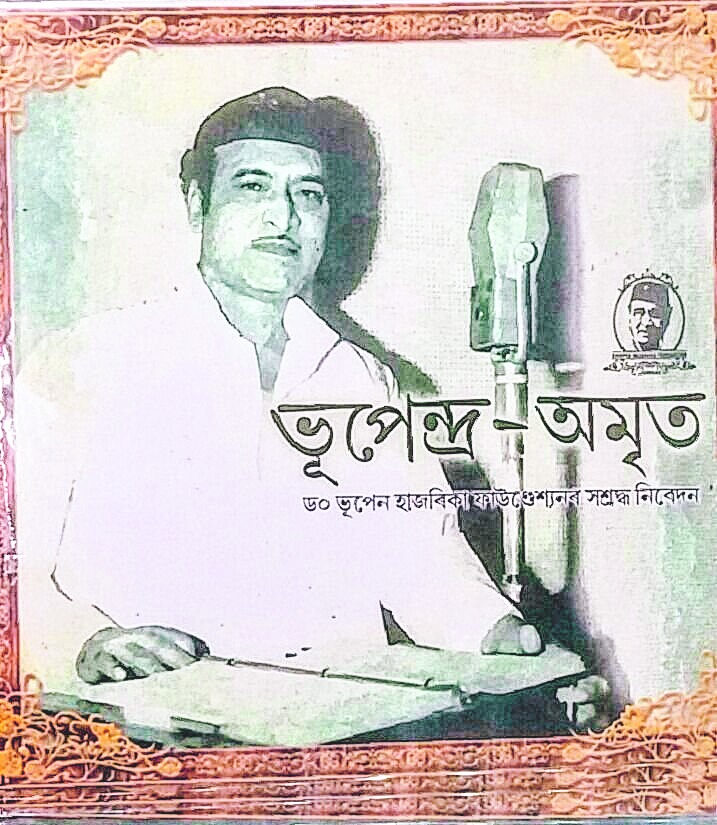
Jorhat, Feb. 8: We have heard Bhupen Hazarika's golden voice breathe life into songs. Now the fans who never have enough of the musician can listen to the beloved baritone speak of the composition and history of the songs as well.
A CD, titled Bhupendra Amrit, was released by the Jorhat chapter of the Bhupen Hazarika Foundation recently, containing 10 songs that he had sung as a child. In the CD, the musician himself has explained how and when the songs originated and about the ragas they are set to.
Ranjan Kumar Dutta, the general secretary of the foundation, said Hazarika had recorded the footnotes to the songs when he was at his friend Dilip Kumar Datta's residence at Rhode Island in the US when he had visited him between 1977 and 1983. Datta gave the recorded footnotes to the foundation.
"All the songs, most of them composed by others, were sung before 1940 when Bhupen Hazarika was a child. He was born in 1926 so these were sung before he was 16," Dutta said.
Included in the CD are songs like Mure jibonore xakha Krishna penned by Jyoti Prasad Agarwalla, Kuxumbar putra Sri Xankar gurue dhorisil naamore taan, his first composed song, which was sung by his sister Sudakshina Sharma, and Xakhi he ki kome dukhore kotha, composed by Lakshmi Nath Bezbaroa and the tune composed by Agarwalla.
"Hazarika explains how in Madhabdev's borgeet he uses the Raga Bhatiali, how Bishnu Rabha had composed and taught them how to sing Xurore dewalore at the opening of the doors of the Asam Sahitya Sabha session in 1936 when he was just 10 years old. He also explains how the song O moina ketia ahili toi, a borgeet composed by his father Nilakanta Hazarika, won him the first prize in an all-Assam competition organised by Sandhya Sanmilani. Later, the song was recorded by his sister Sudakshina at Calcutta's Chenola recording company by Jyoti Prasad Agarwalla and Bishnu Rabha because they thought his sister's voice was more suited to the song. This and other interesting nuggets of information are contained in Bhupendra Amrit," Dutta said. In the song Hari eikhon srajila kinu Santiniketan, he explains the scansion rules of the song.
The foundation will also send a proposal to the Sangeet Natak Akademi to formally recognise Bhupendra Sangeet as a genre, like Rabindrasangeet.
The term Bhupendra Sangeet was coined by a close friend and fan of the singer, Bibhu Charan Baruah, and promoted by the Bhupendra Sangeet Samiti formed on June 25, 1981.
The Jorhat chapter, formed in December last year, will also take up research activities into the singer whose humanitarian ideals were the basis of most of his songs.
Dutta said a private junior college, Crescent Academy, had allowed them to use a room and they would later construct a room for permanent use for their activities.
"In Dibrugarh University, there is a Bhupen Hazarika Performing Arts and Research Centre. But research on others is also conducted there. We are going to research Hazarika's work exclusively," Dutta said.
The foundation was set up by Hazarika's son Tez to keep his father's memory alive and carry on his humanistic appeal for generations.











